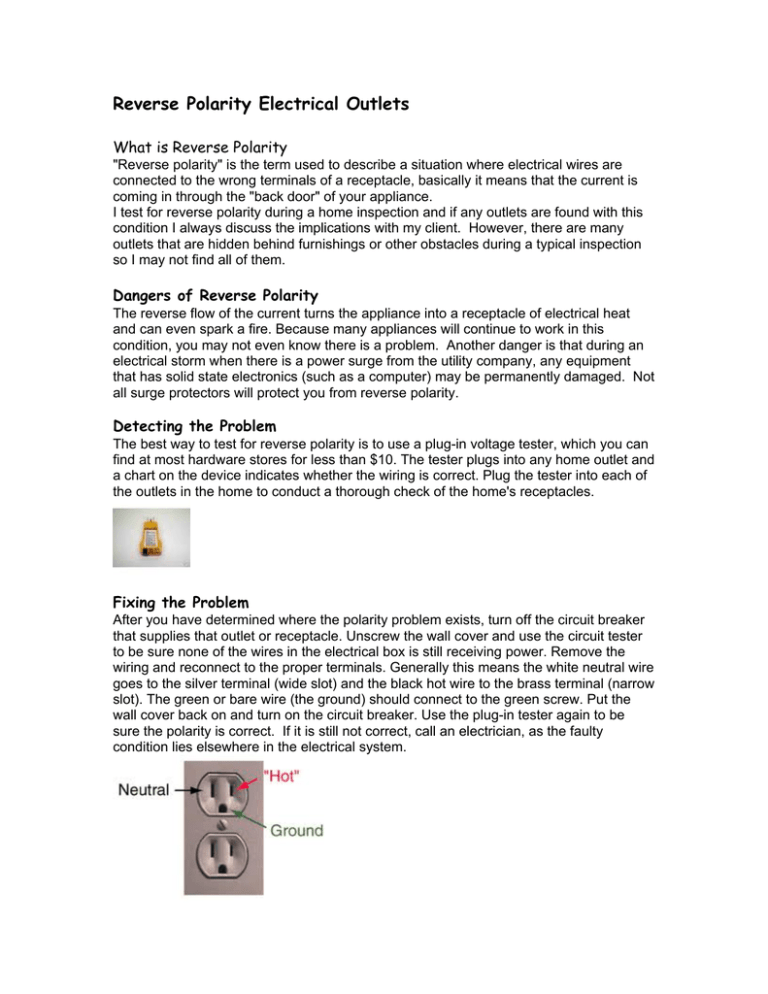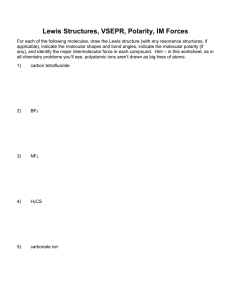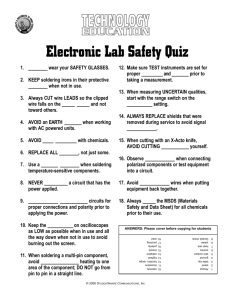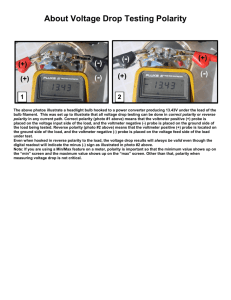Reverse Polarity Electrical Outlets - B5z
advertisement

Reverse Polarity Electrical Outlets What is Reverse Polarity "Reverse polarity" is the term used to describe a situation where electrical wires are connected to the wrong terminals of a receptacle, basically it means that the current is coming in through the "back door" of your appliance. I test for reverse polarity during a home inspection and if any outlets are found with this condition I always discuss the implications with my client. However, there are many outlets that are hidden behind furnishings or other obstacles during a typical inspection so I may not find all of them. Dangers of Reverse Polarity The reverse flow of the current turns the appliance into a receptacle of electrical heat and can even spark a fire. Because many appliances will continue to work in this condition, you may not even know there is a problem. Another danger is that during an electrical storm when there is a power surge from the utility company, any equipment that has solid state electronics (such as a computer) may be permanently damaged. Not all surge protectors will protect you from reverse polarity. Detecting the Problem The best way to test for reverse polarity is to use a plug-in voltage tester, which you can find at most hardware stores for less than $10. The tester plugs into any home outlet and a chart on the device indicates whether the wiring is correct. Plug the tester into each of the outlets in the home to conduct a thorough check of the home's receptacles. Fixing the Problem After you have determined where the polarity problem exists, turn off the circuit breaker that supplies that outlet or receptacle. Unscrew the wall cover and use the circuit tester to be sure none of the wires in the electrical box is still receiving power. Remove the wiring and reconnect to the proper terminals. Generally this means the white neutral wire goes to the silver terminal (wide slot) and the black hot wire to the brass terminal (narrow slot). The green or bare wire (the ground) should connect to the green screw. Put the wall cover back on and turn on the circuit breaker. Use the plug-in tester again to be sure the polarity is correct. If it is still not correct, call an electrician, as the faulty condition lies elsewhere in the electrical system.




